 emperatures continue to dip in Trinidad and Tobago, hitting a nippy 19°C - the coldest on record for the year, according to the Trinidad and Tobago Meteorological Service. The Met Office said in a statement Monday that Piarco recorded a chilly 19°C in the wee hours of Monday morning. “During the early hours of the morning at Piarco, we recorded a minimum temperature of 19 degrees Celsius. This was the lowest temperature for the year thus far.” The Met Office said these low temperatures are normal for this time of year and can be the result of several factors which occurred simultaneously, such as calm or near-calm winds, almost no cloud cover, combined with cold winds originating from the North in the lower levels of the atmosphere (over Trinidad). The Met Office said these factors together increase the amount of 'Outgoing Longwave Radiation' from the Earth's surface at night (the surface cools faster). The Met Office said the record for the lowest temperature at Piarco was a chilly 16.1°C, recorded in January 1964. On January 10, 2019, temperatures dipped to 21.6°C and many Trinbagonians reportedly felt the cooler weather. The Met Office said in February 2017 that it recorded a cool 19.6°C in Piarco, the coldest on record in the previous five years. On February 2, 2008, the Met Office recorded a chilly 18.7°C. The Met Office said these colder temperatures are expected to take place for the remainder of January into February. Source: The Loop, January 14, 2019
0 Comments
Additional scholarship winner Darren Ramsook created eLearn Caribbean, an online programme to help students learn maths. Additional scholarship winner Darren Ramsook has created a free online learning platform eLearn Caribbean, for CXC and CAPE students who need help with mathematics.
It is a way of expressing his gratitude for the scholarship he received in 2015. A former Naparima College student who recently completed his BSc in electrical and computer engineering, Ramsook said his intention was always to use his knowledge to give back to the country which educated him. When, last month Education Minister Anthony Garcia pointed out that nearly 1,500 students claimed zero passes in the 2018 CSEC examinations, out of 11,000 students regionally, Ramsook felt compelled to launch the free online programme he had been working on and which can be now be accessed via http://www.elearncaribbean.com. Within hours of publishing the post on line, he received approximately 200 shares, which was also retweeted 400 times. Since then more and more people are now accessing the videos he has already created for CSEC maths across the Caribbean. While mathematics seems to be the most problematic subject for students, Ramsook’s desire is not to stop at math but incorporate interactive videos of other subjects. However, his challenge at the moment is content and he is appealing to people who are willing to publish content on this site to contact him at [email protected]. Ramsook said he sees this platform as having multiple capabilities in the long term. The beauty is that it is not limited to students of a particular age but provides a platform for older individuals who may not have been successful in previous examinations or never ever got a chance to write the subject before due to financial or other constraints. It is also being developed to work alongside the current teaching infrastructure in secondary schools. “I believe that the platform as well as teachers can make their lives easier by sharing the load as different students react in their own way to certain teaching methods. For example, if someone did not understand how a teacher taught a topic in mathematics, they log on to eLearn Caribbean and get a different perspective,” he explained. Ramsook said originally, hearing horror stories of people falling victim to crime, drove him to create this platform using education as an attempt for a long-term solution to crime. He said he wanted to transform youths involved in crime into contributing citizens as some of his ‘friends’ were led down the wrong path over a series of bad decisions. “That was when I realised that criminals were not formed overnight but were created over an evolutionary progress starting at a very young age. In an effort to make a difference I began helping out my fellow youths in any way that I could have by volunteering in Peer Counselling groups and even just helping out friends with schoolwork.” During his second year at the University of the West Indies (UWI), Ramsook recalled there was an element in a course called the Community Service Learning (CSL) Project which challenged groups of students to find problems in their communities and develop solutions to fix them. This gave rise to his work on the first prototype of the online learning platform. After seeing the potential of the platform, he felt certain that if fully utilised it could be used not only to help students in TT but in the wider Caribbean. “I started working more on the platform from the last day of my final exams in May and with advice from one of my key mentors, Dr Akash Pooransingh, I created a plan on how I should start publishing the platform. It was only on August 16, that I went public with eLearn Caribbean and it just blew up since then.” In addition to creating a learning platform to help others, Ramsook also helped to bring joy to others through his passion for music via the four-piece instrumental band from San Fernando called Triplets. He said Triplets, originally formed at Naparima College with three colleagues, Joshua Regrello, pannist, Lyndel Bertie, electric guitarist, and himself on the bass guitar, maintained the name when Presentation College student and drummer Daniel Ferguson joined the band. All four, three of them scholarship winners, are pursuing tertiary studies here and abroad. Even though they are in demand and recently returned from a gig in the United States, Ramsook said this does not distract from their focus, but helps to “cool their heads”. Touching on his personal life, Ramsook said his desire to help is inspired by his family, including his dad, a former police officer, who was left paralysed by an accident from the chest down because of a reckless driver in 2009. “That time right after the accident was a very trying time for my family but we learnt to play with the cards that we’ve been dealt. This was really hard on my mom and it forced all of us to take on responsibilities and make sacrifices we weren’t comfortable with. Seeing my dad and family fight their way through and emerging the positive people we are today, despite our challenges, makes me believe that there is a better tomorrow. “I take that same thinking of believing that there is a better tomorrow and apply it to our country all the time. That is actually one of the objectives of the learning platform - creating a better tomorrow starting today. I always have this urge to give back to my country because of the scholarship given to me in 2015.” He said he finds purpose from reading about the many problems society faces and coming up with solutions to solve them. At the moment, he says, his head is bursting with ideas, but the focus is on eLearn Caribbean to reach the hearts and minds of people across the region and leave an overall positive impact. “I really do hope that people of today utilize eLearn Caribbean so that they, as well as the country, can reap their rewards as contributing members of society. Even if this has a positive effect on only one person and it helps them out, I can die happy with that in my mind,” he said. Full Measure is a weekly Sunday news program focusing on investigative, original and accountability reporting. On assignment, they sometimes find out about remarkable things we didn't even know existed. That's what happened to Scott Thuman and crew on a recent trip to Trinidad and Tobago. They came across our amazing natural wonder. TRINIDAD is shrinking. On every coast, the ocean is clawing at the land.
A dramatic example of this unstoppable force was the collapse in February of the cliff face in Cedros that consumed almost five acres of land on a peninsula that the experts say is losing as much as two metres of land every year. But long before Cedros, coastal residents have been watching the sea with unease. Coastline erosion is something that often happens imperceptibly slow, over hundreds, thousands of years. But people are seeing landforms reshaped in mere decades. On Trinidad’s rocky north coast, village elders can tell of the stacks and arches, islets and caverns erased in short years, of sand beaches swept away to reveal long buried rock formations, and of seafront homes undermined and lost to a conspiracy of wind, waves, currents, tides and a rising sea level linked to global warming, melting the ice caps and glaciers. On the island’s east coast, the roads to the old cocoa plantations and beaches in North Manzanilla now end abruptly at precipices, and the sea takes chunks of fertile land with every high tide. The bathing beaches between Manzanilla and Guayaguayare are losing the coconut trees and seawalls. Tidal surges have made brackish swampland out of cropland. Beachfront home owners spend a fortune protecting their investment, defending with boulders, tyre revetments, tree trunk groynes, rock cages and concrete embankments. The Atlantic always wins, in the end. In the natural harbour that is the west coast, the battering swells in the Gulf of Paria have been taking back the land reclaimed along the King’s Wharf, San Fernando, at Waterloo’s cremation site and the Temple in the Sea, and overtopping the Mosquito Creek road with increasing frequency. The Shore of Peace Cremation Site would have been lost if not for a $60 million coastal stabilisation, that also stopped the advance of the sea in the Cocal, Manzanilla. But nowhere is the evidence of Trinidad’s losing battle more striking than on the south coast with its retreating clay and sandstone cliffs. Here is it recorded that up to twelve metres of land have eroded in a single year in areas between Los Iros and Quinam Bay- the location of south Trinidad’s most visited beach, which no longer exists. A similar rate of erosion has taken place along Moruga’s south coastline where at the once popular La Retraite Beach, a visitor must descend a cliff to get to the shore. Moruga is also where you will find more worrisome evidence of what is happening - concrete abutments of flood gates and fishing boat landings now sitting out at sea, the staircases of houses embedded in the sand littered with uprooted forest trees and bamboo groves. At Gran Chemin, Moruga’s main village, the St Peter’s statue erected by custodian of the area’s history Eric Lewis, is now threatened. Its foundation is being licked by the waves finishing off the nearby fisherman shacks and derelict port facility. But it is this very coastline destruction in Moruga that has revealed a piece of Trinidad’s history buried for so long that, when the waves exposed it some weeks ago, few knew what it was. Its presence was brought to our attention by Moruga building contractor and community activist Loretto Miguel who himself wanted to know what the thing was, and whether the State had a plan to stop to damage being done to the fishing facility. If you visit the village coastline at low tide, you will find a thick metal cable emerging from the muddy sea, snaking along the sand, and disappearing into the land near the Moruga Roman Catholic Church. That telegraph submarine cable has been there since 1871, and when it came, it surely changed the course of Trinidad's history. Before its arrival, Trinidad’s only means of communication with the world was by mail. The telephone was not yet invented. A letter to Europe went by ship and a reply would take months. That is, until the invention of the electric telegraph in the 1850s, when morse code could be transmitted through copper wires over long distances in order to communicate by telegram. This would lead, after many failures, to the development and laying of a transatlantic submarine cable in 1858 connecting the United Kingdom with North America, considered one of the great feats of the time. "It is a triumph more glorious, because far more useful to mankind, than was ever won by conqueror on the field of battle" US President James Buchanan messaged Queen Victoria in the first telegram to be exchanged in 1858. The telegraph cable network would expand to include a connection to Cuba, Panama, Jamaica, Puerto Rico, St Thomas, St Kitts, Antigua, Guadeloupe, Dominica, Martinique, St Lucia, St Vincent, Barbados, Grenada, Trinidad and Demerara (now part of Guyana). It is that Trinidad to South America cable connection that has been exposed in Moruga. In the journal of chief engineer and electrician Sir Charles Tilston Bright, the man who oversaw the laying of the cable system for the West India and Panama Telegraph Company, his visit to Moruga examines the proposed landing site is reported as September 9, 1871. Within months of his visit, the island was connected, with it being recorded: “At Trinidad, the Demerara cable was landed at the south-east corner of the island; while the continuing section northwards to Grenada was taken from Macqueripe Bay. The connection to Port of Spain (the capital) on the west side, was made by means of a long land-line A great part of this was erected through dense forest of more than fifty miles, which had to be cleared by a small army of wood cutters for a width of at least forty feet, for a considerable distance”. By 1910, the major countries of the world were connected, and messages that took months to send, could be transmitted in mere minutes. What can be seen in Moruga is part of the thicker section specially designed to withstand the surf at landing sites – a cable with a core of seven copper conductor wires insulated with a type of natural latex called Gutta Percha, bound by an outer layer of steel, and encased in silica and tar, weighing sixteen tonnes to a mile. In all, 4,200 miles of cable was laid by the West India and Panama Telegraph Company, which would come to be known as Cable and Wireless. Source: The Daily Express, Jan 2019 One week before her 79th birthday, Calypso Rose will perform at Coachella, one of the world's biggest music and arts festivals. Rose, real name Linda McArtha Sandy-Lewis, was among the star-studded cast announced for the 2019 festival to be held in California. She was announced for the April 12 and 19 shows which will be headlined by Childish Gambino, Janelle Monae and Diplo, among others Other shows will see the likes of Ariana Grande, Khalid, Solange, Kid Cudi, Pusha T, Wiz Khalifa and a slew of acts from across the world. Commenting on her selection for Coachella on Instagram, Rose said she is so excited." I can’t wait to sing, dance and enjoy this time with all of you," she wrote. Calypso Rose, who was recently awarded the Grand Prize for World Music award at the Sacem Grand Prix in France, has seen a resurgence in her career since she released her album Far From Home in 2016. She has toured throughout Europe and in 2017 won the World Album of the Year at the Victoire de la Musique, considered the French equivalent of the Grammy Awards. In May last year, Rose released her follow up album So Calypso. Source: The Loop Jan 2019  Williams, 71, died in Barbados on December 11. Pamela was one of two children Williams had with his first wife, Elsie Ribeiro, and was named Elsie after her, though she was known by her middle name. Williams also had a son, Alastair, with Ribeiro. He had another daughter, Erica Williams-Connell, with his second wife, Soy Suilan Moyou. Pamela’s funeral took place yesterday at the Chapel of Coral Ridge Memorial Gardens in Barbados. She will be cremated on Friday. Former People’s National Movement stalwart Ferdie Ferreira said he did not interact with Pamela as much as he did with Erica and Alastair, but said he remembered Pamela as a “decent, classical person” and was aware she had a “very powerful academic career.” Pamela was a retired regional representative of the Inter-American Development Bank and a former Caribbean Development Bank employee. She lived in Wyndham, Strathclyde, St Michael in Barbados.  Friends, family, the musical fraternity and the country at large are mourning the passing of yet another musical icon, Dr Andrew Marcano, aka Lord Superior, fondly known by friends and family as 'Supie'. Superior passed away on November 24, 2018 in New York, after ailing for some time. TUCO Trinidad and Tobago issued a statement on Sunday, hailing Marcano's musical genius and passionate spirit. "For the third time in less than a month, the calypso fraternity is plunged into mourning another calypso icon, with the death of Dr Andrew Marcano, also known in the calypso Industry as Brother Superior who passed away on Saturday 24th November 2018, after ailing for some time now." "Supie as he was fondly called, was one of those special bards who advocated for years, that there should be more calypso played on local radio stations to the point that he laboured for over twenty years until he was afforded a radio license from the government." "He called his station Superior Radio and was one in those days that played calypso music twenty-four hours each day," the statement said Dr Marcano was known for always being impeccably dressed. "One of the bards who was always dressed to kill as we say in T&T, he will be remembered for the life of our cultural history." "On behalf of the Trinbago Unified Calypsonians Organisation, once again the President Mr Lutalo Masimba and his General Council along with the entire TUCO membership, we sincerely extend our deepest condolences to his immediate family around the world and here in T&T." "May the soul of the late Dr Andrew Marcano aka The Brother Superior rest in peace with our calypso ancestors. Funeral arrangements will be forthcoming as they are received by TUCO," the statement said. Friends, family, the musical fraternity and the country at large are mourning the passing of yet another musical icon, Dr Andrew Marcano, aka Lord Superior, fondly known by friends and family as 'Supie'. Superior passed away on November 24, 2018 in New York, after ailing for some time. TUCO Trinidad and Tobago issued a statement on Sunday, hailing Marcano's musical genius and passionate spirit. "For the third time in less than a month, the calypso fraternity is plunged into mourning another calypso icon, with the death of Dr Andrew Marcano, also known in the calypso Industry as Brother Superior who passed away on Saturday 24th November 2018, after ailing for some time now." "Supie as he was fondly called, was one of those special bards who advocated for years, that there should be more calypso played on local radio stations to the point that he laboured for over twenty years until he was afforded a radio license from the government." "He called his station Superior Radio and was one in those days that played calypso music twenty-four hours each day," the statement said Dr Marcano was known for always being impeccably dressed. "One of the bards who was always dressed to kill as we say in T&T, he will be remembered for the life of our cultural history." "On behalf of the Trinbago Unified Calypsonians Organisation, once again the President Mr Lutalo Masimba and his General Council along with the entire TUCO membership, we sincerely extend our deepest condolences to his immediate family around the world and here in T&T." "May the soul of the late Dr Andrew Marcano aka The Brother Superior rest in peace with our calypso ancestors. Funeral arrangements will be forthcoming as they are received by TUCO," the statement said. His son, Moriba Marcano, said in a social media post that the calypso icon was a visionary of his time. "RIP Dr Andrew 'Lord Superior' Marcano, my dad just passed in NY, one of his favourite places in the world, where he was set to be a star in the 1960's before deciding to return to Trinidad in an attempt to assist the burgeoning nation in forming its cultural identity." "He was a great man and a visionary of his time writing songs to help guide humanity in general and his people in specific. Sadly misunderstood and underappreciated, I studied the man like a text book and I only hope that his genius and goodwill will be more easily recognized in the afterlife. I loved you dad," he said. Actor Michael Cherrie also issued his condolences: “Remembering Andrew Marcano - Lord Superior RIP... calypso great...make new and wonderful vibrations in that new realm...my deepest condolences to you, Moriba Marcano...Godspeed Supie...” Jazz musician Etienne Charles issued his condolences via social media: "Dr. Andrew Marcano aka Brother Superior aka Lord Superior aka Supie. the consummate Gentleman, class act, pillar of knowledge, guiding counselor and boss calypsonian. Thanks for your friendship, musicianship and clever wit. I'll say your name forever. my heart and condolences go out to your family and loved ones," he said. Minister of Agriculture, Lands and Fisheries, Clarence Rambharat, also acknowledged Dr Marcano's monumental contribution to local culture. "Dr Andrew Marcano - Rio Claro’s Lord Superior has gone. So much remains to be told- seeing the greats at Crown Theatre and the train as Rio Claro’s connection to the best artistes of the day; living with Spoiler; campaigning for local content in the airwaves and completing more than 60 years in calypso," he said. Dr Marcano was born in Rio Claro in 1938 and made his debut into calypso at the age of 16 singing a calypso called "Coconut" at the Victory Calypso Tent in Port of Spain. In those days he was considered to be the youngest Calypsonian to perform locally. Some of his memorable calypsoes were, Spread Joy, San Fernando Carnival, Saga T'ing, We want a day, Standardise Pan, Cultural Assassination and Put the women on top. He was awarded the Hummingbird medal Silver in 2015 and received his Honourary Doctor of Letters at the 2017 graduation ceremony at the University of the West Indies in Trinidad. He was considered to be the first calypsonian to produce a record on his own record label, the first to Perform at the Madison Square Gardens, in New York, USA, and the first to produce a full-length calypso musical. He would have celebrated his 81st birthday next month. "Rest in peace Bro Superior. You truly did it your way," said TUCO. Nine years ago, Dennis McClung had a rundown swimming pool and an ambitious goal, to plant a garden that would provide a self-sustaining food system for his family.
McClung and his wife transformed the empty cement pit behind their home in Mesa, Arizona, into a closed-loop ecosystem teeming with life, from vegetables to chickens, even a pond with tilapia. The innovative urban farm was soon producing enough food to feed the couple and their three young children, cutting their monthly grocery bill by almost half. But what McClung accomplished after that is even more remarkable. With no formal training, just plenty of ingenuity, hard work, and resourcefulness, McClung is now helping people around the world build climate-resilient and highly productive food systems. Since launching his nonprofit organisation Garden Pool, in 2012, McClung’s backyard experiment has bloomed into a multifaceted operation that is collaborating with foreign governments on food sustainability, operating public seed libraries, offering classes and workshops, developing a solar-powered water sterilisation system and most recently, working on a HoloLens application designed to help users build customised food systems. Though McClung’s farming methods might be low-tech, the technology he uses to power his organisation is not and driven by Microsoft. He uses Windows 10, Office 365 and a Surface device for graphic design, research, proposals, and marketing; collaborates with employees and volunteers remotely via Microsoft Teams; and uses Skype to teach a 3D modelling course to interns. Working with Chaney St Martin who is based in T&T, the Golden Grove Prison became the site of his latest imitative where inmates had been tending an enclosed garden in a field by hauling watering cans back and forth in the blazing heat. McClung set up a self-irrigating water collection system and a fish pond and added vertical growing, raising plants in stacked layers instead of in the ground to boost the garden’s production. Prison administrators were so excited about the changes that they asked for their own training session. “They said the project served as a model for them to do the same thing on their own farms,” says Chaney St Martin, an international specialist in water and soil management for the Inter-American Institute for Cooperation on Agriculture (IICA), which partnered with Garden Pool on the Trinidad project and several others in the Caribbean. There was almost no budget for the Trinidad prison project, McClung said, so instead of using a premade liner for the fish pond, he made one by mixing cement and sand. He built the pond’s pump from spare pipes and used some old cement blocks to create raised garden beds. “We really had to be MacGyver on this one, because the prison really didn’t have any budget,” McClung says, laughing. “We just looked at what they had, and we got really creative.” St Martin, met McClung at a conference a few years ago. The two got talking and resolved to work together in the Caribbean. When Hurricane Irma raged through the region in September 2017, devastating several islands, they seized the opportunity to help. McClung, unencumbered by the bureaucracy of a large organisation, and his data quickly mobilised resources and arrived on the ground to work with the IICA, St Martin said. “It was a tremendous effort. If you understand the Caribbean context, people tend to be suspicious when outside organisations come in,” he says. “But Dennis was able to come in and blend in very easily with the culture. People really loved the work that he did.” McClung is turning to data collection to validate and quantify his models for sustainable farming. He’s working with governments in countries where Garden Pool has conducted projects to collect data on farm yields, productivity, and costs, and is partnering with Joel Cuello, a professor of agricultural and biosystems engineering at the University of Arizona and an expert on vertical farming, on the HoloLens project. With his first international office based in Trinidad, using datasets from their work, McClung and Cuello plan to develop a HoloLens app using Microsoft AI and other services that will allow users to select a food system model and scale it to a particular space. The app will tell them how much the project would cost, what materials are needed and how much it would produce. The goal is to have a prototype by the end of next year, Cuello said. He sees information sharing as critical to Garden Pool’s ultimate goal of promoting global food security. “No one on this planet should be hungry with the technology available to us right now,” he says. “It’s just a matter of using it efficiently and spreading it to those who need it. “The fact that we’re changing the world is more important to me than being rich or taking the fame and the glory for it,” McClung says. “I’d rather share the knowledge so that others can do for themselves.” Source: Trinidad Guardian, Dec 2018 Bazodee is heading to India.
The Machel Montano love story featuring Bollywood star Kabir Bedi will be screened as part of the Chennai International Film Festival on December 14. In making the announcement on Instagram, the soca king said this is the first time films from Trinidad and Tobago will be screened at the Festival. "So I’m glad our movie will be included in this inaugural group. Many thanks to the High Commission of the Republic of Trinidad and Tobago in New Delhi, India for showcasing and promoting Bazodee," he wrote. The movie will be screed at the Devi Bala Theatre in Chennai. Bazodee premiered globally in 2016 and has since been screened in the US, Barbados, Jamaica, Montreal, Canada and London, UK. The movie won the Audience Award and Best Music Award at the Latin Asian Film Festival, which took place in London. Bazodee stars Montano, British Asian actress Natalie Perera, Trinidadian/British actor Valmike Rampersad and Indian/Russian star Staz Nair. Source: The Loop, Dec 2018. Port of Spain Mayor Joel Martinez and Tourism Trinidad Ltd Chairman, Janelle Penny Commissiong, at a meeting held by Port of Spain Rotary Club, Goodwill Industries, Fitzblackman Drive, Woodbrook. Behind is Tourism Trinidad Ltd Director, Joanna Gittens and Tourism Trinidad Ltd CEO Designate, Camille Campbell. PHOTO:ANGELO M. MARCELLE CHAIRMAN of the Trinidad Tourism Ltd and former Miss Universe 1977 Janelle “Penny” Commissiong said the number of visitors to Trinidad fell 3.6 per cent in 2017 from the previous year.
Making a comparison with the Bahamas, which has a population of about 400,000, Commissiong said 6.3 million people visited those islands in 2017, compared to 375,000 visiting TT, whose population is about 1.4 million. She said the Bahamas was a well-developed traditional destination in close proximity to its primary market, while TT was a somewhat underdeveloped, non-traditional destination relatively remote from its most important market. Commissiong, the feature speaker at a Rotary Club of PoS lunch yesterday at Fitzblackman Drive, Woodbrook, said she did not think crime caused the drop in arrivals to the country. “We are not sure yet why the numbers have dropped 3.6 per cent, so one will have to do studies on that, do surveys to see what that 3.6 per cent is, and what time of the year that happens. But I really wouldn’t say it’s the crime, because we are here, we are in it.” She said while visitors to the Bahamas could buy a package holiday to any one of its islands, interacting only peripherally with Bahamian staff and service providers, most visitors to Trinidad had personal business or other connection to a Trinidadian. Commissiong said there was a clear difference and distinction between the core tourism product in the Bahamas and the basis of the initial tourism marketing and development thrust in Trinidad. She said Trinidadians must make a conscious effort to acquaint visitors with its tourism products of reliable quality and good value for money and all consciously and actively become ambassadors, guides, promoters and providers of tourism services in Trinidad. Commissiong said many Trinidadians did not compute that it was Trinidad that most visitors came to. “Now that the separation is there in terms of marketing, I think the focus is a lot clearer. I don’t see it as a daunting job because we have the product, a product which Trinidadians take for granted and don’t realise as a tourism product. It is about getting Trinidadians to understand we are in the game and have always been in the game. Source: Newsday, Dec. 2018 |
T&T news blogThe intent of this blog is to bring some news from home and other fun items. If you enjoy what you read, please leave us a comment.. Archives
June 2025
Categories
All
|

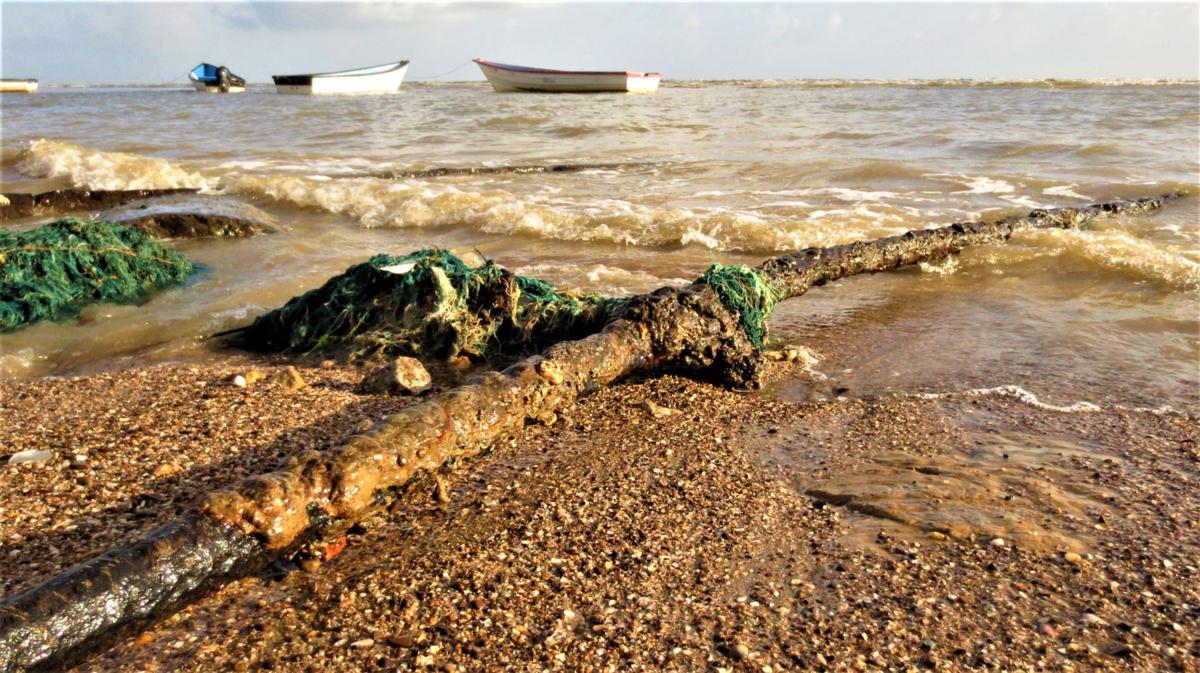

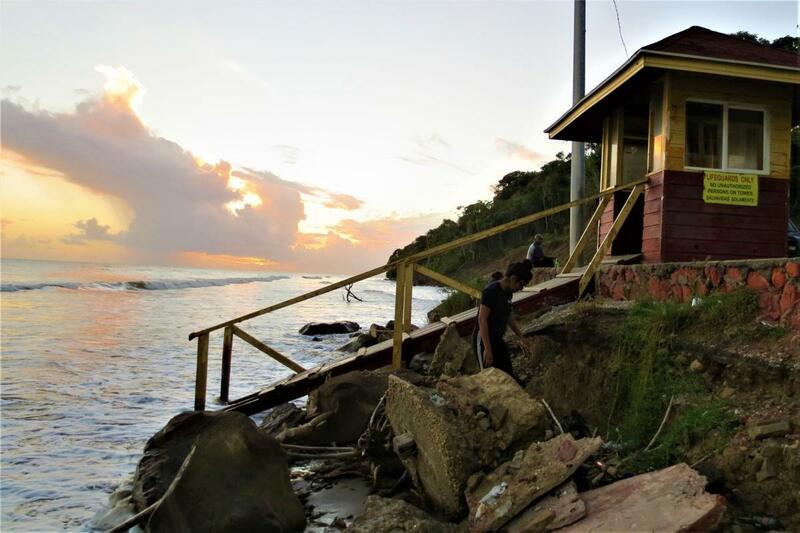

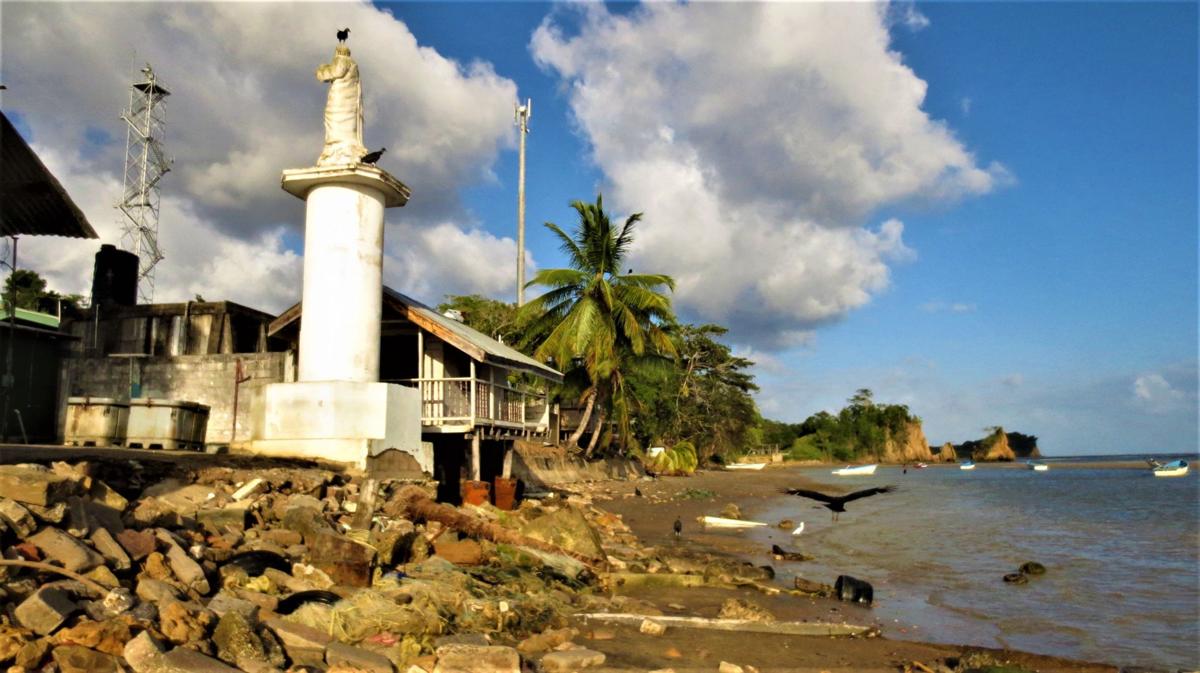
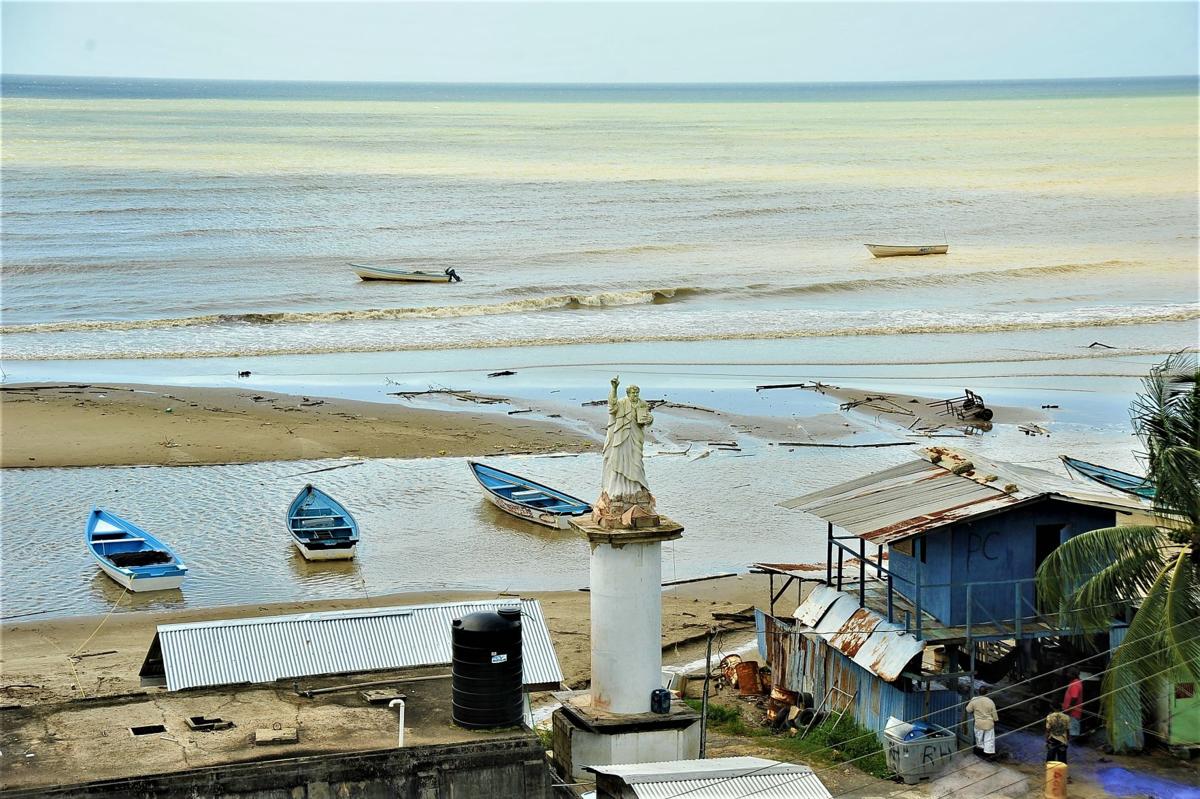


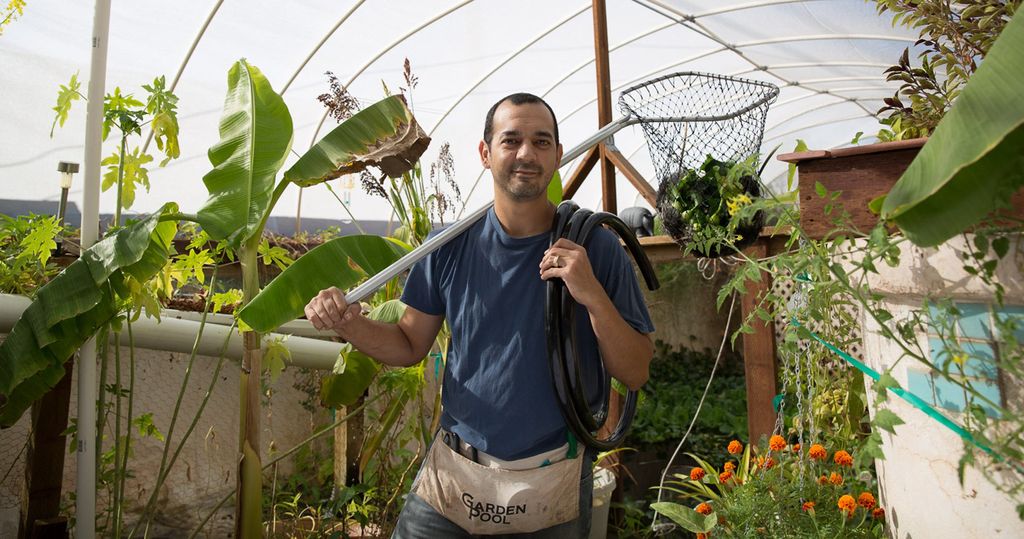



 RSS Feed
RSS Feed